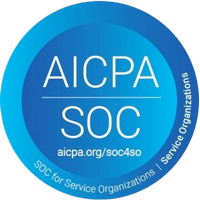It’s a candidate’s market in healthcare right now. If you want to stand out from the competition and recruit qualified applicants, investing in the best benefits for employees can help.
In fact, according to Glassdoor, 57% of job seekers reported they take perks and benefits into serious account before accepting a job. A solid suite of benefits can help you attract new healthcare candidates and retain current employees. Here’s what you need to know.
What Are Employee Benefits?
Employee benefits are any kind of compensation provided to employees outside of their monetary wages. While certain benefits are considered standard, employee benefits can be diverse and individually tailored to a company and its employees.
What Are the Most Common Benefits for Employees?
The most common benefits for employees are medical insurance, life insurance, ancillary insurance, and retirement options.
These benefits are standard for many companies, and they’re extremely important. But now, worker expectations are shifting. With so many job opportunities for healthcare workers, employers need to be competitive with their benefits. If you don’t expand your portfolio of benefits, you could risk losing out on your ideal hires.
11 Benefits & Perks Employees Really Care About
1. Health Insurance and Wellness Benefits
Most employers offer health insurance. It makes sense that health insurance has been reported as the most desired benefit for employees. So how can you stand out?
Consider adding wellness benefits that cover the parts of wellness not included in most health insurance plans. For example, you could offer free or discounted gym memberships, access to mental health apps, or a flat reimbursement fee for workers who spend the money on wellness. These types of perks are completely separate from your employee’s health insurance plan, but can help support their holistic well-being. You can also look into tax-saving programs such as FSA, HSA, or DCA programs that don’t cost employers as much money.
2. Paid Time Off
The research group Time Off found that paid time off is the second most important benefit to workers, right after health insurance. PTO is crucial to alleviating burnout, especially in a high stress healthcare environment. However, 52% of workers in 2017 didn’t even take their full vacation days. In addition to offering PTO, make sure your employees know that you encourage them to take the full amount. With robust guidelines in place, and overview by management, you can create a PTO plan that allows employees to take their maximum time without leaving shifts unfilled.
3. Flexible Scheduling
Arduous schedules can create an undue burden on healthcare employees. Long shifts and inadequate breaks can lead to higher levels of burnout and patient dissatisfaction.
Allowing workers flexible scheduling can prevent exhaustion and increase quality of care. In fact, 26% of working parents say that it would be the most helpful factor in allowing them to balance their work and personal lives. Most healthcare workers are women, and a third of women in the workforce are working mothers. When you support flexible scheduling, you support the individuals who make healthcare what it is.
4. Student Loan Assistance
Student loan repayment has been at the forefront of headlines since the start of the COVID-19 pandemic. There’s a lot of uncertainty right now for people with student loans. President Biden extended the freeze on student loan repayment until August 31, 2022. But many are still unsure about where they stand after that date has passed.
Many employers now offer student loan repayment in order to stand out. In healthcare, student loan related benefits can make a huge difference, as many staff members are likely under an enormous amount of student debt.
5. Professional Development and Tuition Assistance
When choosing benefits for employees, consider professional development. When you cultivate your employees’ careers, you show them that you’re invested in their own long-term goals.
Everyone wants to work somewhere where they’re valued. Professional development initiatives can be a great way to help your employees through their chosen career paths. In-house trainings or seminars have the added benefit of allowing you to hire internally and promote from within.
Not able to provide in-house professional development? Consider tuition reimbursement or assistance, so employees can pursue new and relevant skills outside of work.
6. Parental Leave
Statistics around parental leave in America can be bleak. For example, 25% of women are forced by financial necessity to return to work within 2 weeks of giving birth. You can stand out by letting candidates know that you’re there to support them through a robust parental leave program. Offering paid time off beyond what is mandated by the federal and state governments can be a great way to increase your reputation among employees, and to be noticed in a flooded job market.
7. Child Care Assistance
One in three workers across industries has a child under the age of 18. Supporting working parents means supporting workers in general.
There are many types of child care assistance employers can provide, from onsite child care to a stipend. In 2021, 65% of employees inquired about accommodations for working parents, so addressing child care outright can really make you stand out as an employer. To learn more about child care assistance, check out our post on supporting working parents.
8. Commuter Benefits
More and more workplaces are moving towards remote work, but clinical healthcare workers usually don’t have that luxury. However, gas prices are on the rise, and commuting is getting expensive. This could mean exorbitant costs for your employees, especially if they don’t (or can’t) use public transit.
Commuter benefits for employees are a great way to stand out, during and after this spike in gas prices. For employees who do use public transit, consider free metro cards or bus passes, if those are possibilities in your area. One unique way to help: offer gift cards for employees willing to drive to pick up other staff, or create a more informal system for carpooling.
9. Disability Insurance
Disability insurance is a common benefit, but it’s worth highlighting due to the increasing awareness around ability and disability.
According to the Social Security Administration, 25% of 20-year-olds will become disabled at some point before reaching age 67. Short and long-term disability insurance are both important options to offer your staff. Some states legally require employers to provide disability insurance. Regardless of whether you live in one of these regions, robust disability benefits will help you attract, retain, and support employees.
10. Flexible Benefits
Consider introducing flexible benefits. Flexible benefit programs allow your employees to choose the benefits best suited for their individual needs and lifestyle. These programs also allow your employees to adjust to difficult circumstances, such as the unexpected pressures of inflation or the COVID-19 pandemic.
Unsure what’s best for your employees? Consider checking in with your employees via survey to hear more about what they want.
11. Pay Frequency
In an unpredictable economy, frequent pay can also be a lifesaver for many employees. Many companies offer weekly or daily pay, as well as payment in advance. On the flip side, frequent payroll errors can be a deterrent for employees, and can even increase turnover. Automated payroll can help mitigate these errors. Employees will notice when you respect their need for timely and accurate compensation.
Better Hiring With Apploi
Regardless of what benefits for employees you choose to offer, Apploi is here to help you improve and streamline your hiring process. Interested in learning more about how you can recruit, hire, and onboard healthcare staff quickly? Contact us today for a free demo of our end-to-end talent management solution.





